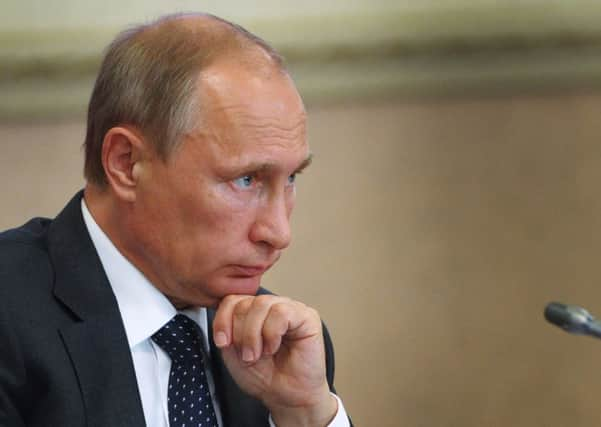Leaders: No winners in Putin’s Russian roulette


It will bring considerable disruption to EU trade and deepen concern over prospects for the more vulnerable EU economies. This marks a hardening of president Putin’s increasingly belligerent stance over the Ukraine. And it portends a growing Russian isolation, with an economic and political rift between Russia and the West, threatening 25 years of liberalisation.
EU exports of food to Russia last year were worth some £9 billion. Australia, Canada and Norway are also affected. And Western concerns are by no means limited to food products. Russia is also banning Ukrainian airlines from transit across its territory and it is also considering banning transit flights for EU and US airlines in retaliation for sanctions over Ukraine. This would significantly increase costs and flying time for many jets bound for Asian destinations.
Advertisement
Hide AdAdvertisement
Hide AdAnd on financial markets, share prices fell back sharply as the potential impact of sanctions added to heightened geopolitical tensions. Countries close to Russia are also revising the outlook for their economies.
All this is not without considerable risk for president Putin. He is counting on a swift response by domestic food producers by way of import substitution. But that may take at least a year, and this cushion for Russian consumers is by no means guaranteed. The Russian president also had to introduce a new sales tax this week to help compensate for the expected fall in revenues from arms sales and state revenues from Russian banks as a result of Western sanctions. This will not be at all well received by Russian consumers who are already having to contend with a recent rise in interest rates and inflation running at 8 per cent. With an economy already in trouble, a sales tax hike at this point risks tipping it into recession.
For EU producers, a prolonged ban could cause serious and lasting damage, particularly if Russia succeeds in obtaining increased production from South America and China to fill the void: markets for some products could be lost forever.
But it is the signal it sends about Putin’s intransigence in the wake of the downing of the Malaysian airliner over eastern Ukraine that may cause the greatest dismay. Russia has failed to answer searching questions over the widely suspected use of Russian missiles in this outrage, while more heavy Russian military equipment is reported to be crossing the border into eastern Ukraine in defiance of international law. Any further heightening of Russian-backed aggression in the country would almost certainly see the West reach for further sanction. Putin is playing a high-risk game with an escalating polarisation – one in which millions, both in Russia and Western Europe, will be losers.
A sense of achievement
OF ALL the legacy projects in the wake of the superb Glasgow Commonwealth Games, the announcement of a £9 million dedicated para-sports facility in Scotland is to be specially commended.
An outstanding feature of the Games was the way in which para sports were integrated and supported. They featured the highest number of para-sport medal events in the history of the Games, with Scottish athletes winning seven medals. The new para-sports hub – hailed as the first of its kind in the UK – involves extensive refurbishment of the National Sports Centre Inverclyde in Largs, North Ayrshire. It will allow disabled athletes to train at “outstanding” fully integrated facilities in a wide range of sports.
The Largs-based centre already includes an international standard gymnastics training facility, and the expansion will be funded by means of a £6m grant from the Scottish government, with the balance of £3m coming from sportscotland, the national sport agency.
This goes a long way to correcting a long-standing gap in sports funding and, as Shona Robison, cabinet secretary for Commonwealth Games and Sport, declared, will give a new generation of para-athletes the chance to train at world-class facilities and emulate their Games heroes
Advertisement
Hide AdAdvertisement
Hide AdThe redevelopment is expected to be completed in 2016. The project, which will also benefit young people who want to participate in a range of para-sports, is a tribute to the courage, dedication and professionalism shown by Scotland’s para athletes and is a positive and tangible legacy in which all Scotland can take pride. It is sure to make a big difference to a lot of people.